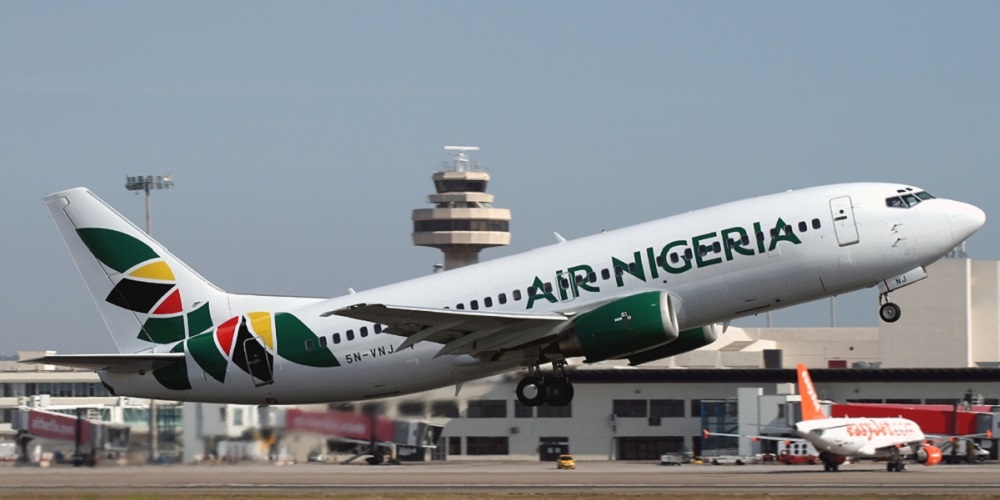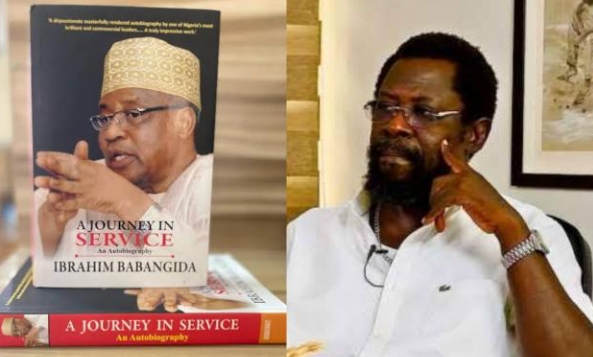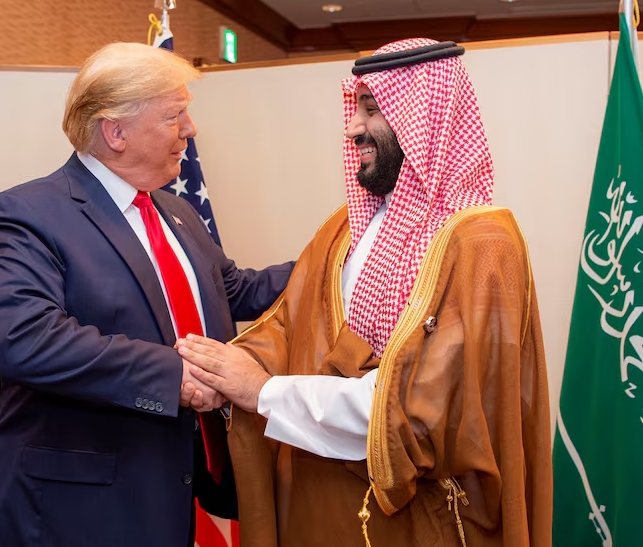News
Nigeria Air N2.6b investigation: EFCC quizzes Ethiopian Airlines CEO

As part of the ongoing probe of the N2.6 billion allegedly spent on Nigeria Air, the Economic and Financial Crimes Commission (EFCC) has debriefed top officials of Ethiopian Airlines on some of its findings on the botched project.
The Nation gathered yesterday that during the interface, the team led by Group Chief Executive Officer of Ethiopian Airlines Mesfin Tasew claimed that the Ministry of Aviation owed them $211,000.
The team also alleged that the terms of the “pact” entered into with the Aviation Ministry during the tenure of former Minister Hadi Sirika were “brazenly breached.”
Tasew was quoted by an EFCC source as saying that “The Nigerian government lost interest in partnering with a foreign airline” because of the manner the project was handled by the ministry.
The EFCC official did not say when the Ethiopian Airlines officials visited Nigeria on the invitation of the anti-graft agency.
He, however, explained that the claim on $211,000 debt was ‘’another dimension to the probe of Nigeria Air.’’
He said: “As part of our investigation, we want to find out how about N2.6 billion was allegedly spent on the botched Air.
“So far, we were able to uncover N1,326,731,470.97 allegedly spent on a Consultancy contract for Nigeria Air. This is already an issue before a court.
“In the course of findings, our operatives also discovered that the Ministry of Aviation was indebted to Ethiopian Airlines.
‘’Some officials of Ethiopian Airlines were in the country for interaction. We debriefed them and they explained the details of the Nigeria Air project.
“They confirmed that the implementation of the agreement was faulty because the Ministry of Aviation did not keep to the terms.
“They also said the ministry owed the airlines about $211,000. We have been inviting some past and present officials on the nature of the debts.
“Our operatives are digging deeper.”
Sirika, his daughter, son-in-law- inlaw and a firm, Al Buraq Global Investment Limited, are being prosecuted by the EFCC over corrupt practices involving about N2.7 billion.
The former minister unveiled Nigeria Air on May 26, about 72 hours to the end former President Muhammadu Buhari’s tenure.
According to the agreement on Nigeria Air, Ethiopian Airlines had a 49 percent equity stake; Federal Government, five percent; and a consortium of three Nigerian investors, 46 percent .
The deal however collapsed leading to the withdrawal of Ethiopian Airlines from Nigeria Air.
EFCC investigation indicated that before the pact collapsed, about N2.6 billion was sunk into the project in alleged “questionable circumstance.”
Aviation and Aerospace Development Minister Festus Keyamo recently affirmed that Nigeria Air remained suspended.
Keyamo said: “It remains suspended. It was never Nigeria Air. It was not Nigeria Air. That’s the truth. It was only painted Nigeria Air.
“It was Ethiopian Airlines trying to fly our flag. If it is so, why not allow our local people to fly our flag? Why bring a foreigner to fly our flag? So nobody should dispute that it was Nigeria Air.
“Nigeria Air must be indigenous, must be wholly Nigerian, and must be for the full benefits of Nigeria, not that 50 percent of the profit is for another country.”
News
Saudi Arabia donates 100 tonnes of dates to Nigeria as fasting approaches

By Kayode Sanni-Arewa
The Embassy of the Kingdom of Saudi Arabia in Abuja has held an official ceremony to distribute 100 tonnes (100,000kg) of dates to Nigeria as part of its annual humanitarian relief efforts.
The initiative, facilitated by the King Salman Humanitarian Aid and Relief Centre (KSrelief), aims to support vulnerable families across the country and strengthen the deep-rooted ties between the two nations.
During the ceremony, the Ambassador of the Custodian of the Two Holy Mosques to Nigeria, Faisal bin Ibrahim, conveyed the Kingdom’s dedication to humanitarian causes.
He expressed his profound gratitude to King Salman bin Abdulaziz and Crown Prince Mohammed bin Salman for their unwavering support in providing aid to Muslims and underserved communities worldwide.
He emphasised that Saudi Arabia remains steadfast in its commitment to fostering Islamic solidarity and providing relief to those in need.
Mr Al-Ghamdi explained that this year’s distribution includes 50 tonnes of dates for Abuja and another 50 tonnes for Kano, continuing Saudi Arabia’s tradition of assisting Nigeria through humanitarian donations.
He noted that the initiative represents the Kingdom’s broader mission to uplift Muslim communities, alleviate suffering, and promote unity, particularly during significant religious periods such as Ramadan.
The embassy, in collaboration with local authorities and humanitarian organisations, will ensure the proper distribution of the dates so that they reach the most vulnerable families in various regions of Nigeria
Saudi Arabia has been a longstanding partner in providing humanitarian aid to nations across the globe, including Nigeria. The Kingdom’s continued efforts in supporting food security and welfare initiatives exemplify its role as a global leader in charitable and humanitarian endeavours.
Through Vision 2030, Saudi Arabia seeks to expand its contributions to international humanitarian causes, reinforcing its dedication to fostering peace, stability, and prosperity worldwide. The ongoing provision of aid to Nigeria is a testament to these commitments and highlights the decades-long partnership between the two brotherly nations.
News
Babangida’s Book is filled with distorted facts, collection of lies, says Dele Farotimi

By Kayode Sanni-Arewa
Dele Farotimi, a human rights lawyer, has launched a heavy attack on former dictator Gen. Ibrahim Babangida (retd.), describing his reign as “ruinous”.
Farotimi, who lived through Babangida’s rule, recounted his experiences as a participant in the fight against the former leader’s “evil actions and inactions
Farotimi’s comments come after Babangida’s recent admission that Chief M.K.O. Abiola won the 1993 presidential election, which Babangida annulled.
The human rights lawyer expressed his disappointment, but not surprise, at the “mixed bag of lies, half-truths, urban legends, and obfuscations” in Babangida’s recent statements.
Farotimi’s criticism is not isolated, as many Nigerians have questioned Babangida’s legacy and the lack of consequences for his actions. The annulment of the 1993 election led to widespread protests and a prolonged struggle for democracy in Nigeria.
In a statement, Farotimi concluded, “No hagiographic allocutus can redeem the Evil Genius of Minna”.
The statement was shared on X while he was reacting to a comment made by Adnan Abdullahi Adam, which stated that “it’s better to read every side of exposition before forming your own judgement”.
With the cover picture of the IBB’s memoir “A Journey In Service” @realadnantweet wrote:
“I think IBB’s memoir: “A Journey in Service” exposes a fresh perspective on everything.
“It’s better to read every side of exposition before forming your own judgement.
“Everyone should try reading the book as jury to the plea of the accused.”
Responding Farotimi wrote: “I lived through his ruinous reign. I wasn’t a passive victim of his evil actions and inactions, I was a participant in the fight to be freed of him.
“I am painfully aware of the extent of his evil capabilities, and I have not been disappointed by the mixed bag of lies, half truths, urban legends, and obfuscations contained in the excerpts already in the public domain. No hagiographic allocutus can redeem the Evil Genius of Minna.”
On Thursday, February 20, 2025, former Nigerian military ruler General Ibrahim Badamasi Babangida (IBB) released his long-anticipated autobiography, “A Journey in Service.”
The memoir has ignited a firestorm of controversy, with critics accusing Babangida of distorting historical events and maligning deceased individuals who cannot defend themselves.
This development has reopened debates about his tenure and its lasting impact on Nigeria’s political and economic landscape.
Babangida’s tenure from 1985 to 1993 was marked by the implementation of the Structural Adjustment Programme (SAP), among others. In “A Journey in Service,” he provides an insider’s perspective on the adoption of SAP, aiming to offer context for the controversial policy that aimed to liberalize Nigeria’s economy.
While intended to address economic challenges, SAP led to widespread protests and debates due to its harsh austerity measures and the social hardships it imposed.
Critics, however, contend that Babangida’s memoir serves as a self-exoneration tool, selectively presenting events to absolve himself of blame.
Human rights lawyer and former Chairman of the Nigerian Human Rights Commission, Prof. Chidi Odinkalu, described the book as a “pack of lies,” accusing Babangida of making allegations against deceased individuals who cannot contest his claims.
Odinkalu further criticized Babangida for portraying himself as a victim of circumstances orchestrated by those who are no longer alive to defend themselves.
The memoir has also rekindled discussions about Babangida’s annulment of the June 12, 1993, presidential election, widely regarded as one of Nigeria’s freest and fairest elections. In the book, Babangida attempts to justify the annulment, a move that plunged the nation into political turmoil and prolonged military rule. Many Nigerians view this action as a significant setback to the country’s democratic progress.
News
Saudi Arabia plans to invest $600bn in new US trade over 4 years

By Kayode Sanni-Arewa
Saudi Arabian Crown Prince Mohammed bin Salman told President Donald Trump that the kingdom wants to put $600 billion into expanded investment and trade with the United States over the next four years, the Saudi State news agency said early on Thursday.
In a phone call between the two leaders, the crown prince said the Trump administration’s expected reforms could create “unprecedented economic prosperity”, the state news agency reported.
The report said Saudi Arabia wants its investments to capitalize on these conditions. It did not detail the source of the $600 billion, whether it would be public or private spending nor how the money would be deployed.
The investment “could increase further if additional opportunities arise”, the agency quoted Bin Salman as telling Trump.
Trump fostered close ties with Gulf states including Saudi Arabia during his first term. The country invested $2 billion in a firm formed by Jared Kushner, Trump’s son-in-law and former aide, after Trump left office.
Trump said following his inauguration on Monday that he would consider making Saudi Arabia his first destination for a foreign visit if Riyadh agreed to buy $500 billion worth of American products, similar to what he did in his first term.
“I did it with Saudi Arabia last time because they agreed to buy $450 billion worth of our product. I said I’ll do it but you have to buy American product, and they agreed to do that,” Trump said, referring to his 2017 visit to the Gulf kingdom.
The Reuters Daily Briefing newsletter provides all the news you need to start your day. Sign up here.
Reporting by Hatem Maher; Editing by Leslie Adler and Cynthia Osterman
-

 News22 hours ago
News22 hours agoJust in : Senator Gumau is dead
-

 News23 hours ago
News23 hours agoRep Salam Congratulates Governor Adeleke On Successful Conduct Of LG Elections
-

 Metro15 hours ago
Metro15 hours agoFire engulfs MTN office in Oyo
-

 News22 hours ago
News22 hours agoPolice seal OSSIEC office, officials nabbed, says chairman
-

 News23 hours ago
News23 hours ago10th NASS Committed to Constitutional Reforms – Kalu
-

 Metro15 hours ago
Metro15 hours agoInsecurity! Gunmen invade church, slash pastor’s 2 fingers
-

 News22 hours ago
News22 hours agoI have never insulted President Tinubu in my entire life”-Gov Adeleke
-

 Foreign15 hours ago
Foreign15 hours agoPentagon set to sack 5400 staff as attack hits Trump’s downsizing plan







